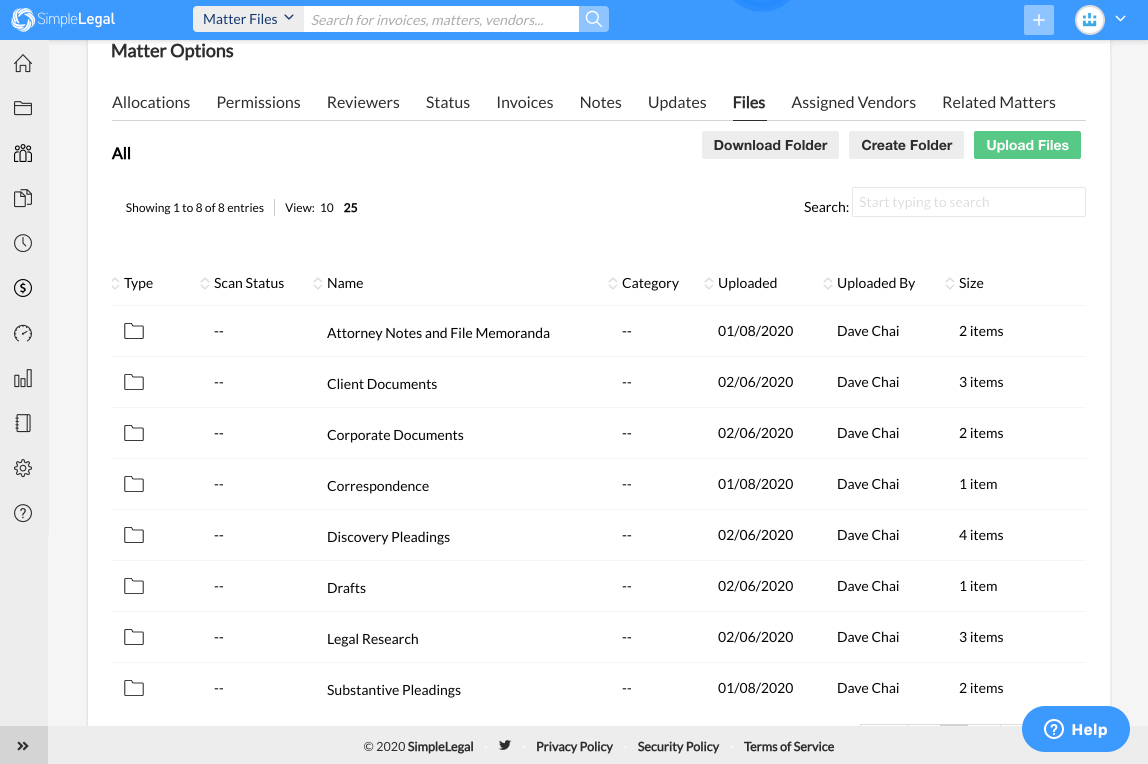Legal ops: your legacy systems are holding you back

At the end of a long week, you sit down to find a great movie to watch. It takes a solid five minutes for Netflix to boot up. Then, you can’t preview any movies within the application, so you switch over to YouTube and manually search for titles there. Once you finally find a movie you like, you go back to Netflix, only to find that the title you want isn’t available. So you open Google and search for where you can stream the movie, which leads you to Hulu. An hour later, you can finally start the film.
Sounds pretty terrible, right?
If you’re still holding onto legacy systems in your legal department, that’s what your team deals with all day, every day.
Legacy systems — outdated technology that is still crucial for day-to-day operations — are common in legal departments. Like many legal ops professionals, you probably assume that your current set up is working just fine, so there’s no need to fix what isn’t broken. But, in reality, those antiquated systems are holding your department back.
Legacy Systems Cost You More Than You Think
Many legal departments will argue that they simply don’t have the budget to upgrade their technology. But the truth is, outdated setups cost more to maintain.
In 2019, the U.S. Federal Government spent 80% of its IT budget on operations and maintenance — and the issue isn’t isolated to government. A survey of chief information officers (CIOs) showed they spent 40-60% of their time just managing legacy IT. At this point, sticking with legacy systems is the equivalent of asking Netflix to send you DVDs and then paying for maintenance on a dusty old DVD player.
Old-school setups also open your department up to more security risks. Are your current systems really worth the possibility of a data breach that could lead to expensive lawsuits down the line?
How Costly Maintenance Holds You Back
Obviously, dedicating the majority of your budget to maintenance is not ideal, but the negative effects also compound over time.
Avoiding digital transformation makes you less competitive in your industry. If you’re allocating more than half your budget to maintenance, you won’t have much left for innovation. Plus, outside firms don’t want to work with clunky, outdated systems. As your tech becomes more and more frustrating to work with, you can also miss out on valuable partnerships and lose revenue.
Patched-together systems also increase your risk. And, because general counsel have become the responsible party for risk and data breaches, this is a serious problem for your department. Unsecured setups force general counsel to spend more time focusing on risk assessments and responding to breaches rather than their other job duties – especially considering how these duties have expanded for today’s business-minded GCs.
Outdated Tech Frustrates Your Employees
Worldwide, 75% of employees think workplace technology is unnecessarily complicated. What’s worse — more than one-third of those employees feel that legacy technology makes their job harder.
Workplace technology used to be cutting edge, but now, consumer tech is more intuitive. Wouldn’t you love to preview documents like you can preview shows on Netflix? Your staff sure would. In fact, 48% of employees wish their office technology worked like their personal technology.

With SimpleLegal’s document management system, you can preview files without downloading them — much like viewing a trailer before you commit watching a movie.
When tools have a high learning curve, user adoption rates are low — employees either don’t use the tools at all or don’t use them efficiently. Legacy systems aren’t usually intuitive, so your team requires more training just to learn the basic functionality. It’s aggravating and time-consuming for both the trainees and the trainers. People don’t want to sit through trainings. They want technology that is easy to use and makes their jobs simpler.
How Frustrated Employees Hold You Back
Holding onto outdated systems slows your team down and affects their morale in the process. Unhappy teams don’t just influence the mood around the office — they also negatively impact productivity and retention.
Happy, engaged employees show a 21% increase in productivity and a 45% lower turnover, on average. Turnover costs vary but can easily add up to thousands or even millions of dollars over the course of a year. Your IT budget probably doesn’t factor in turnover and productivity losses. But if your outdated tech is frustrating your team, it’s certainly not doing your hiring budget any favors.
Updated legal enterprise software, like SimpleLegal, has features your employees are already familiar with, like full-text search and category tags. The SimpleLegal team believes that users should be able to use 80% of the platform without training.
Disjointed Systems Limit Your Access to Valuable Data
Legal departments often need to explain and justify spend to finance and accounting. If all your data is spread out across multiple systems or buried in complex spreadsheets, you’ll have a hard time making your case.
Workers spend almost 20% of the workweek searching for and gathering data. Chances are, your legacy system forces your team to move between multiple applications to round up information — wasting even more time in the process.
Once they have the data, your employees still have to organize and present it in a useful way. “Data wrangling” — collecting and preparing data — can eat up more than half of a data scientist’s time. Consider how long it takes a legal ops professional who doesn’t specialize in data wrangling.
How Lack of Data Access Holds You Back
You can’t be a data-driven department without streamlined data access. In order to gain full visibility into your spend, you’ll need easy access to important data, documents, and reports.
A single legal matter could involve hundreds or even thousands of documents — if your team can’t locate what they need quickly, productivity plummets.
Reporting shouldn’t be rocket science, but legacy systems make gathering and interpreting data arduous. Let’s say finance wants a rundown of outside counsel spend. With an outdated setup, you might have to hop between applications and manually format the data. Depending on the number of vendors you work with and the detail finance requires, the process could take hours.
Meanwhile, updated systems can automate much of the data collection and use business intelligence capabilities to put it into a useful context. It’s the difference between strolling through a video store and manually compiling movie descriptions versus simply sending someone a link to some trailers on YouTube.
Legacy Systems Force You to Waste Time on Low-Value Work
Antiquated systems lead to high-paid employees getting bogged down with mundane administrative tasks. Legacy systems don’t support many of the time-saving features that allow your team to avoid basic admin work.
Automation, for instance, can replace manual data entry and other unskilled tasks, such as formatting reports or double-checking the math on an invoice. Integrations allow you to connect systems to minimize the back-and-forth between tools. But legacy setups rarely support automation and integration features. So your highly skilled employees spend much of their time on low-value tasks that an upgraded system would be able to handle for the employees.
Moreover, when systems aren’t connected, documents, conversations, and important information get lost or delayed. For example, many legal departments still rely on email to manage invoicing. Because most invoices require sign-off from multiple parties, it’s easy for invoices to get stuck in one person’s inbox or forgotten altogether.
How Admin Work Holds You Back
You probably didn’t hire your legal ops manager for their amazing data-entry skills. But if you’re relying on legacy systems, much of your team’s day will be dedicated to inputting information and other low-value work.
Ninety percent of businesses currently leverage technology to automate processes — if you’re not automating, you’re already behind. Lack of integrations will slow you down as well. Task switching not only results in up to 40% productivity loss but can also “temporarily lower your IQ by up to 15 points.” Forcing your team to move between clunky tools all day doesn’t just waste time; it hinders people’s ability to think properly.
It’s Time to Upgrade Your Legal Technology
You wouldn’t spend an hour switching between four different tools just to watch a movie. Your legal department shouldn’t have to deal with that level of inefficiency in the workplace, either.
Stop wasting time and money on legacy systems in your legal department. Investing in upgraded legal enterprise software can help you become more competitive, keep your employees more engaged, and give you better visibility into and control of your budget.
Sign up for a SimpleLegal demo to see how our platform can get your legal department up to speed.


